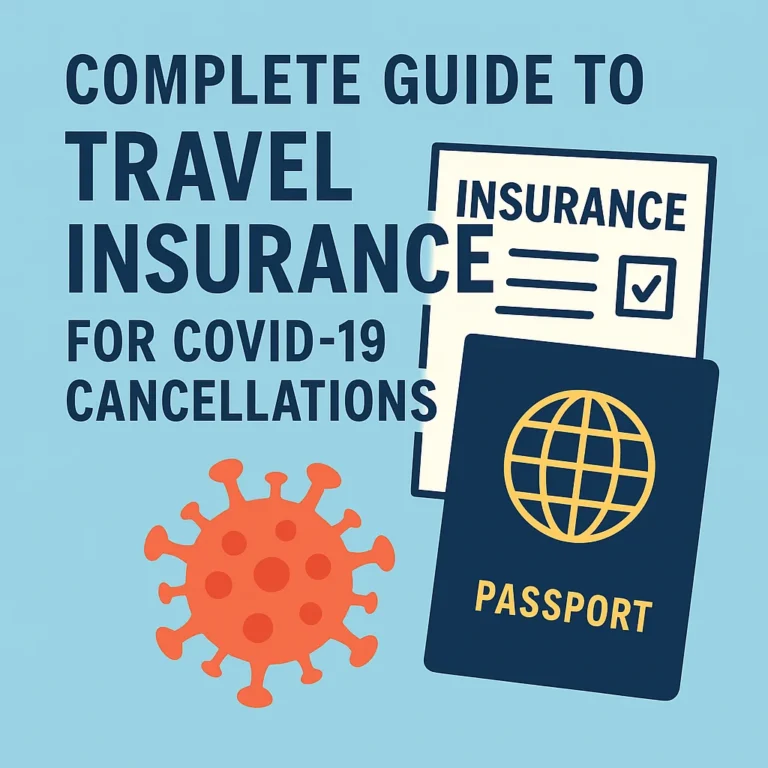Studying in the United States as an F1 international student comes with many exciting opportunities—and crucial responsibilities. One of the most important yet often overlooked aspects is having adequate medical insurance that complies with university policies and visa regulations.
This guide outlines the top 10 insurance requirements every F1 student should know before arriving in the U.S. We’ll also cover how these plans differ from domestic coverage, and what options best suit students on a tight budget. Understanding these guidelines can help you avoid unexpected medical costs and remain in compliance with immigration rules.
Understanding Health Insurance for F1 Students
Why F1 Students Need Medical Insurance
Unlike citizens or permanent residents, F1 students are not eligible for government-sponsored health insurance programs like Medicaid or Medicare. The cost of healthcare in the U.S. is high, with even a simple emergency room visit potentially costing thousands of dollars. Hence, maintaining private health insurance coverage is essential for F1 students.
University-Specific Insurance Requirements
Many U.S. colleges require international students to enroll in their institution-sponsored insurance plans. Others allow waivers if the student proves they have an equivalent or better plan from a private provider. In either case, failure to comply can result in registration holds or visa complications.
Insurance vs. Compliance: Maintaining Visa Status
The U.S. Department of State does not mandate specific insurance levels for F1 students, but many universities impose coverage standards to ensure students can handle medical expenses. Failure to maintain valid insurance may indirectly impact your visa compliance due to academic interruptions or billing issues.
Cost Considerations and Budgeting
F1 students must budget for insurance as part of their living expenses. On average, an individual plan costs between $800 and $2,000 per year. Factors such as age, school location, and coverage level will affect your premium. Having insufficient insurance can result in out-of-pocket bills far exceeding the premium amount.
Top 10 Medical Insurance Requirements for F1 Students
1. Minimum Coverage Limits
Recommended Limit: $100,000 or higher per accident/illness
Most universities require international student plans to offer at least $100,000 in coverage per injury or illness. This ensures the student is protected in cases of hospitalization or surgery. Some top-tier universities even require coverage limits of $250,000 or more.
2. Mental Health Services
Inpatient and outpatient therapy coverage
Given the stress of living abroad and academic pressure, mental health support is essential. Comprehensive plans must cover both psychiatric hospitalization and outpatient counseling services.
3. Prescription Medication
Must include retail and mail-order options
Your insurance plan should cover prescription drugs, including generic and brand-name medications. Many schools require at least 50% reimbursement for covered medications.
4. Maternity and Prenatal Care
Required in some states and universities
Some universities insist that insurance plans cover maternity care from prenatal to delivery. While this is less common for single students, compliance may be mandatory depending on your school’s policy.
5. Emergency Evacuation and Repatriation
Typical minimum: $50,000 evacuation / $25,000 repatriation
F1 students must be insured for medical evacuation back to their home country in emergencies. Similarly, repatriation of remains coverage is required in case of death while in the U.S.
6. Low Deductibles
Under $500 per condition
Plans with high deductibles reduce premium cost but increase financial risk. Most universities require a deductible of $500 or less per condition.
7. In-Network Doctor Access
Access to PPO or EPO networks preferred
Your plan must offer access to an extensive network of doctors and hospitals. Preferred Provider Organization (PPO) or Exclusive Provider Organization (EPO) plans are most commonly accepted by universities.
8. Preventive Care
Immunizations, routine screenings, and wellness visits
F1 insurance should include preventive services like flu shots, annual physicals, and STD testing. Some states mandate vaccinations for enrollment, so make sure your insurance covers those costs.
9. Pre-Existing Conditions Coverage
Limited waiting periods or exclusions
If you have a chronic condition, confirm whether the insurance policy covers pre-existing conditions. Many insurers impose a 6- to 12-month waiting period or outright exclusions, which may be unacceptable for some schools.
10. Policy Language and Claims Processing
Must be in English and U.S. currency
To comply with administrative requirements, the policy documents and claims processing must be in English and settled in U.S. dollars. Foreign language policies may not be accepted for waiver purposes.
Comparison Tables
| Feature | University Plan | Private Plan |
|---|---|---|
| Cost per Year | $1,200 – $2,500 | $800 – $1,800 |
| Customizability | Low | High |
| Waiver Approval Rate | N/A | Varies by School |
| Evacuation/Repatriation | Included | Sometimes Optional |
| Requirement | Minimum Standard | Mandatory? |
|---|---|---|
| Injury/Illness Coverage | $100,000+ | Yes |
| Emergency Evacuation | $50,000 | Yes |
| Mental Health Coverage | In/out-patient | Yes |
| Prescription Drugs | 50%+ reimbursed | Yes |
Consequences of Non-Compliance
Risk of Enrollment Denial
If you do not meet your school’s insurance standards, you may be denied enrollment or face administrative blocks. This can delay your academic timeline or even affect your F1 status.
Potential Visa Issues
While the U.S. government doesn’t enforce insurance directly, any delay in enrollment or registration due to insurance issues could create problems with your SEVIS record and visa eligibility.
Financial Exposure
Without adequate coverage, students risk accruing large hospital bills or being denied treatment. A single emergency room visit in the U.S. averages $1,200–$2,500, and inpatient stays can reach tens of thousands of dollars.
Frequently Asked Questions
Is health insurance mandatory for all F1 students?
Yes, while not federally mandated, nearly all universities require F1 students to carry qualifying health insurance to remain enrolled and compliant.
Can I use travel insurance instead?
Travel insurance typically does not meet the requirements for long-term study. It lacks adequate coverage for chronic conditions, mental health, and preventive care.
How do I submit a waiver for my university plan?
You must present proof of equivalent private insurance, including policy documentation, in English with clear deductible and coverage limits. Your university’s international student office can provide forms and deadlines.
Conclusion and Summary
Understanding and meeting the medical insurance requirements for F1 students is a vital step in securing your academic and financial future in the U.S. From coverage limits and mental health to repatriation and claims handling, each element plays a role in maintaining your status and well-being.
Start by consulting your school’s insurance office and comparing your options wisely. Whether you opt for a university-sponsored plan or obtain private coverage, make sure it fulfills all required categories.
Don’t leave your health or visa to chance. Prepare early, budget appropriately, and make sure you’re covered from day one.
F1 Visa Health Compliance Guide
Best Affordable Insurance Plans for International Students
External Resources:






